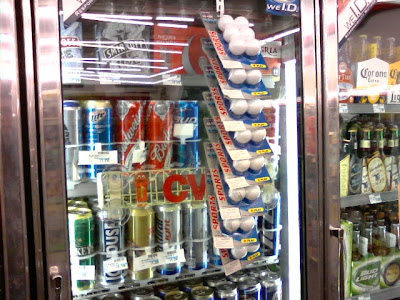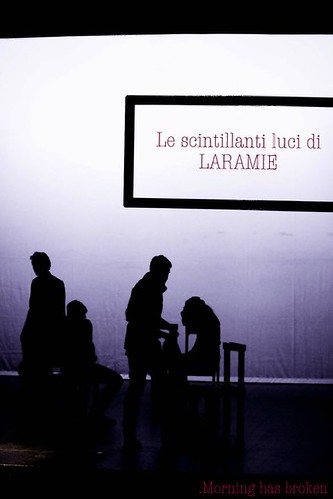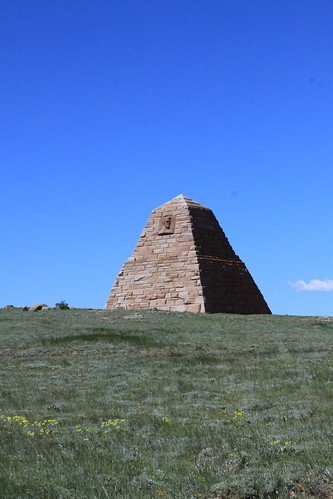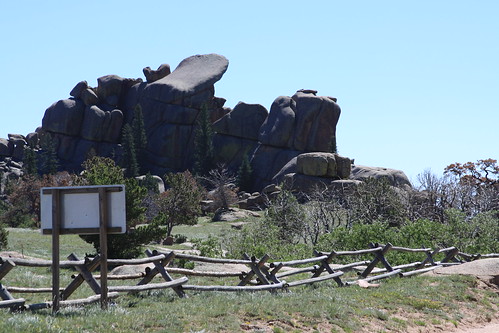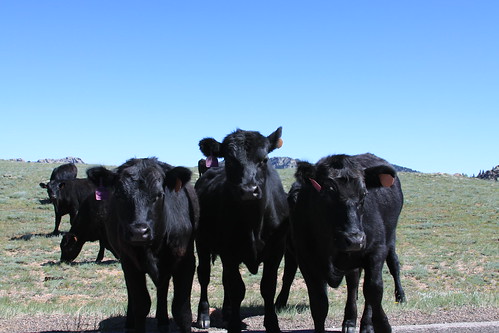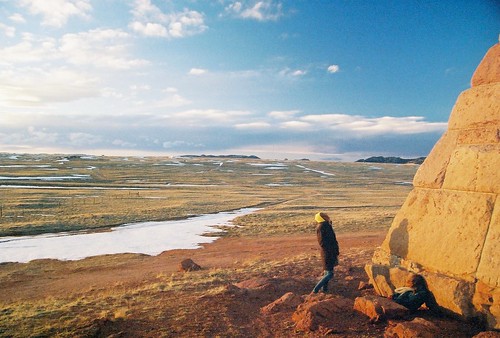Ah,
Festivus.

To be honest, my family was acquainted with its own version of that holiday long before
Seinfeld ran with it on their sitcom, but in my family we called it by traditional names like "Thanksgiving" or "Christmas." In my family, holidays have never been a source of joy and conviviality, but rather, something much more closely akin to what George Costanza's father had in mind, with feats of strength and the all-important airing of grievances.
The Jackrabbit family has always rigorously observed the Airing of Grievances at holiday gatherings and (for some reason peculiar to us) especially Thanksgiving. There's something about the tryptophan in turkey and the close proximity to each other that makes my relatives feel like it's a good time to explain to each other exactly how we're screwing up each others' lives. This has always made for a lively Thanksgiving: food, festivity, and, after a few beers and a bottle or two of wine, fireworks.
At this point,
The Laramie Project feels like family, too, but more in that
Married with Children sense of "family" than
The Waltons, which is fine with me; my real family is more like
Married with Children anyhow. My relationship to the play is a little dysfunctional, a little codependent, and definitely just a tad hostile; conversely, if anybody else bashes them, I get righteously pissed. In my family, that means you love each other, so... I guess that means I love Tectonic Theater. Welcome to the family, guys. Pull up a chair and pass the gravy.
After blogging on
The Laramie Project for so many months now, I feel like I'm finally able to tease out some of the knotty spots regarding my relationship to this play. I can now say truthfully (and with much relief) that I don't hate this play or Tectonic Theater. I can also say that my ambivalence for the play has stemmed from a lot of issues, not because Tectonic Theater did something wrong, but usually because they did so many things
right. The play makes me angsty and hostile because it seriously challenges my identity in ways I don't always think are fair, but are nevertheless important for social growth. In some ways, my relationship is a lot like a hostile teenager to a confrontational mentor: I'll grow up and develop into an ethical citizen working for a just society because of you, but I'm
still going to resent it. So
there. Nyah.
I've been spending a lot of time talking about the social good that this play can do, like in my one-and-only academic conference paper on
The Laramie Project. And, except for couple notable exceptions, every time that I think that I've had a genuine complaint against what Tectonic Theater had done, I eventually realize that I haven't considered things completely and that I don't really have a complaint after all. Up to this point, I could point to complications, but not genuine problems once I understood the nuance of the situation, so all I had left was sunshine and rainbows.
Well, I suppose until now, that is. There are a few nagging questions I've had running around in my head for at
least five months, and I think it's about time I address them now. I've long since raised my blogosphere Festivus pole. It's time, now that I've had my Feats of Strength sparring with this play and gotten this dysfunctional family around the proverbial dinner table, that we must finally have the Airing of Grievances.
In a way, I feel like coming to this point represents a genuine breakthrough with my relationship with
The Laramie Project because I can appreciate it for both its strengths and weaknesses without feeling that they define who I am, too. I can also approach it with some critical distance while appreciating all the good they've done.
The play has created amazing moments of social reform because of its unpredictable power-- but that unrestrained power has caused a lot of damage, too. It's like getting radiation therapy: Tectonic Theater identified a terrible social cancer and started attacking it, but they also damaged the surrounding tissues in the process, agitated the body as a whole. And in a real sense, you
have to take the bad with the good; you can't stop showing
The Laramie Project because of the unpredictable consequences. Yet, you still have to recognize that those problems are there, and that their effects are very real. I feel we need to have an airing of grievances so that we can realize what is truly at stake with social theater as radical and powerful as
The Laramie Project. If you're trying to be an earthquake like Tectonic Theater and you shake things up... well, you have to take responsibility for the cracks in the foundations afterward, for the broken earth and shattered windows.
So that's my plan with my next several posts: I am going to be extremely honest about individual areas where I feel like Tectonic has caused a little unintentional social damage or maybe misunderstood their role in the process of bringing Laramie's story into the spotlight. Some of these grievances will be fair, and maybe others won't. Mostly, I want to be extremely honest about what the consequences of those problems might be-- not so that I can judge the play for the damage, but so that we can have a fuller idea of the power and potential of social theater to enact change, be it life-changing in a positive or a catastrophic way.
So: Let the Airing of Grievances begin!
PHOTO CREDIT:
1) A Festivus card, from "teh Internets." I've seen this in a lot of places and don't know who to attribute. If it's yours, feel free to let me know and I'll attribute you!
2) Earthquake damage in Seattle, 1949, from the
Seattle Municipal Archives on Flickr. Available under a Creative Commons License.


